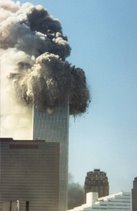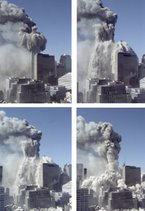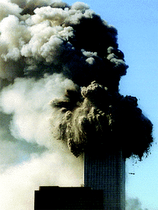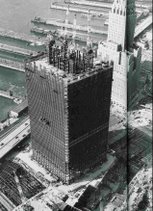Dr. Loftus is professor of psychology at UC-Irvine and University of Washington and a prominent expert on memory.
http://faculty.washington.edu/eloftus/
She has written other books and articles that may be more pertinent, but I have a copy of this book, and the below passage summarizes some of her findings that I think are relevant to consideration of 9/11 eyewitness accounts.
This excerpt describes Dr. Loftus' testimony on behalf of a man prosecuted for murdering his daughter's friend twenty years earlier, based solely on his daughter's accusation that she now remembered her father killing her friend.
I took the stand . . . and for two hours discussed my experiments investigating memory acquisition. I explained to the court that memory fades with time, losing detail and accuracy; as time goes by, the weakened memories are increasingly vulnerable to "post-event information" -- facts, ideas, inferences, and opinions that become available to a witness after an event is completely over. I told the jury about a series of experiments I conducted featuring a shocking film simulation of a robbery. At the end of the short film, a child is shot in the face. Subjects who watched the film with the shocking ending were able to recall details with significantly less accuracy than subjects who watched a similar film without the violent ending.
This study, I explained, tells us about the distortions that can occur in the acquisition stage of memory, when an event occurs and information is laid down in the memory system. Other studies tell us about the retention and retrieval stages of memory, after a period of time goes by and we are asked to recall a particular event or experience. Hundreds of experiments involving tens of thousands of individuals have shown that post-event information can become incorporated into memory and contaminate, supplement, or distort the original memory.
I described a study I'd conducted in which subjects watched a film of a robbery involving a shooting and were then exposed to a television account of the event which contained erroneous details. When asked to recount what happened during the robbery, many subjects incorporated erroneous details from the television report into their account. Once these details were inserted into a person's mind through the technique of exposure to post-event information, they were adopted as the truth and protected as fiercely as the "real," original details. Subjects typically resisted any suggestion that their richly detailed memories might have been flawed or contaminated and asserted with great confidence what their revised and adapted memories told them they saw.
I now see that Dr. Loftus has a number of papers online here:
http://www.seweb.uci.edu/faculty/loftus/
I think the discussion of "misinformation effects" on page 5 of this paper is relevant to the 9/11 eyewitnesses:
http://webfiles.uci.edu/eloftus/WellsLoftus03.pdf
And in this paper as well:
http://webfiles.uci.edu/eloftus/MisinfoCurrentDirections92.pdf






















